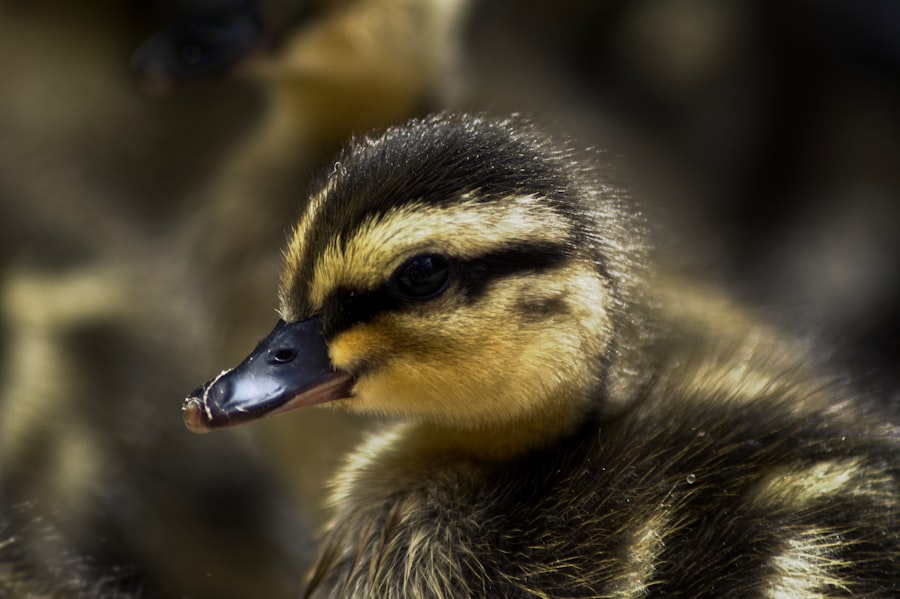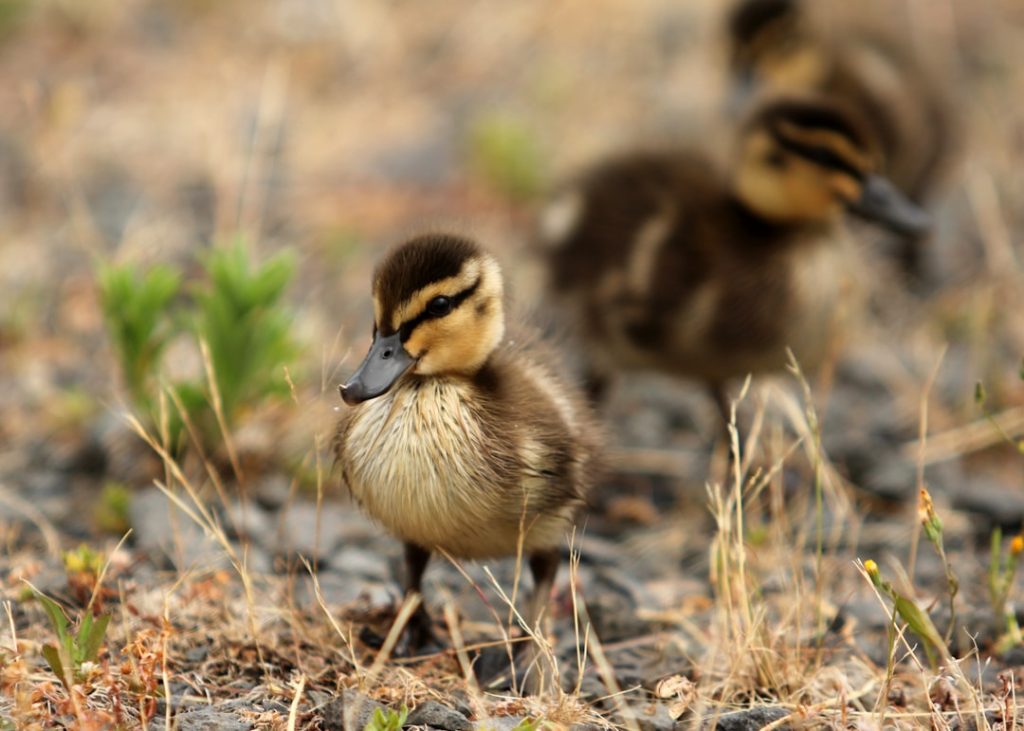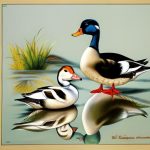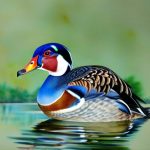When it comes to selecting the right breed of duck for your farm or backyard, there are several factors to consider. First and foremost, you’ll want to think about the purpose of raising ducks. Are you looking for a breed that is good for egg production, meat, or simply as a pet? Different breeds have different strengths, so it’s important to choose one that aligns with your goals. Additionally, you’ll want to consider the climate and environment in which the ducks will be raised. Some breeds are better suited for cold weather, while others thrive in warmer climates. It’s also important to think about the temperament of the breed, especially if you have children or other animals on your property. Some breeds are known for being more docile and friendly, while others can be more skittish or aggressive. Finally, consider the space you have available for raising ducks. Some breeds require more room to roam and forage, while others can thrive in smaller enclosures.
Another important factor to consider when selecting a duck breed is the level of care and maintenance they require. Some breeds are more hardy and require less attention, while others may need more specialized care. It’s important to be realistic about the amount of time and effort you are willing to invest in raising ducks, and choose a breed that aligns with your lifestyle and resources. Additionally, consider the availability of the breed in your area. Some breeds may be more difficult to find or may require special ordering, so it’s important to do your research and ensure that you can access the breed you choose. By carefully considering these factors, you can select the right breed of duck that will thrive in your environment and meet your specific needs.
Table of Contents
Key Takeaways
- When selecting a duck breed, consider factors such as temperament, egg production, and size
- Ducklings require warmth, proper nutrition, and protection from predators
- Popular domestic duck breeds include Pekin, Khaki Campbell, and Indian Runner
- Understanding breed characteristics can help in providing appropriate care and meeting specific needs
- Ducklings need a safe and comfortable housing environment, with access to water for swimming and foraging opportunities
Caring for Ducklings
Caring for ducklings requires careful attention to their needs in the early stages of life. When raising ducklings, it’s important to provide them with a warm and safe environment. Ducklings are particularly vulnerable to cold temperatures, so it’s essential to provide them with a heat source, such as a heat lamp or brooder, to keep them warm. Additionally, it’s important to provide them with clean bedding and access to fresh water at all times. Ducklings are messy eaters and drinkers, so it’s important to clean their living space regularly to prevent the buildup of bacteria and disease.
In addition to providing a warm and clean environment, it’s important to handle ducklings gently and frequently to help them become accustomed to human interaction. This will help them become more social and friendly as they grow older. It’s also important to provide ducklings with a balanced diet that meets their nutritional needs. Specialized duckling starter feed is available and should be provided from day one. This feed is formulated with the essential nutrients ducklings need for healthy growth and development. By providing a warm, clean environment, gentle handling, and a balanced diet, you can ensure that your ducklings grow into healthy and happy adult ducks.
Popular Domestic Duck Breeds
There are many popular domestic duck breeds that are well-suited for a variety of purposes, from egg production to meat or simply as pets. One popular breed is the Pekin duck, known for its large size and excellent meat production. Pekin ducks are also known for their friendly disposition, making them a popular choice for backyard enthusiasts. Another popular breed is the Khaki Campbell, which is known for its high egg production and excellent foraging abilities. Khaki Campbells are also known for their calm temperament, making them a great choice for families with children.
The Indian Runner duck is another popular breed known for its upright posture and excellent egg production. Indian Runners are also known for their ability to forage and their friendly nature. For those interested in ornamental ducks, the Call duck is a popular choice due to its small size and wide variety of color patterns. Call ducks are known for their friendly disposition and make great pets. These are just a few examples of popular domestic duck breeds, each with its own unique characteristics and strengths. By carefully considering the specific needs and goals of your duck-raising venture, you can select a breed that is well-suited for your environment and lifestyle.
Understanding Breed Characteristics
Understanding the characteristics of different duck breeds is essential when selecting the right breed for your farm or backyard. Each breed has its own unique traits and strengths that make it well-suited for specific purposes. For example, some breeds are known for their excellent egg production, while others are prized for their meat quality. Additionally, some breeds are more cold-hardy, while others thrive in warmer climates. Understanding these characteristics will help you select a breed that aligns with your specific goals and environment.
In addition to considering the practical purposes of raising ducks, it’s also important to understand the temperament and behavior of different breeds. Some breeds are known for being more docile and friendly, making them great choices for families with children or other animals. Other breeds may be more skittish or aggressive, requiring more careful handling and management. By understanding these breed characteristics, you can select a breed that will thrive in your environment and meet your specific needs.
Housing and Environment for Ducklings
Providing the right housing and environment for ducklings is essential for their health and well-being. Ducklings require a warm and dry living space that protects them from predators and the elements. A secure coop or brooder with clean bedding is essential to keep ducklings safe and comfortable. Additionally, it’s important to provide ducklings with access to fresh water at all times, as they are messy drinkers and need to stay hydrated.
In addition to providing a safe living space, it’s important to consider the outdoor environment for ducklings as they grow older. Ducks are natural foragers and enjoy access to outdoor space where they can roam and explore. Providing a secure outdoor enclosure with access to water for swimming and foraging opportunities will help ducklings develop into healthy and happy adult ducks.
Feeding and Nutrition for Ducklings

Feeding and nutrition are critical aspects of caring for ducklings as they grow into healthy adult ducks. Ducklings require a balanced diet that meets their specific nutritional needs for healthy growth and development. Specialized duckling starter feed is available and should be provided from day one. This feed is formulated with the essential nutrients ducklings need, including protein, vitamins, and minerals.
In addition to providing specialized feed, it’s important to offer ducklings access to fresh water at all times. Ducklings are messy eaters and drinkers, so it’s important to clean their feeding and watering areas regularly to prevent the buildup of bacteria and disease.
As ducklings grow older, their nutritional needs will change, so it’s important to transition them to a balanced diet that meets the needs of adult ducks. By providing a balanced diet that meets their nutritional needs at each stage of development, you can ensure that your ducklings grow into healthy adult ducks.
Health and Wellness for Ducklings
Ensuring the health and wellness of ducklings is essential for their long-term well-being. Regular health checks by a veterinarian can help identify any potential issues early on and ensure that ducklings receive appropriate care. Additionally, providing a clean living environment with access to fresh water at all times will help prevent the spread of disease.
It’s also important to monitor ducklings for any signs of illness or injury and provide appropriate care as needed. This includes keeping an eye out for any changes in behavior or appetite, as well as any physical symptoms such as lethargy or abnormal droppings.
By providing a warm and clean living environment, a balanced diet, regular health checks, and attentive care, you can ensure that your ducklings grow into healthy adult ducks that will thrive on your farm or in your backyard.
If you’re considering raising domestic duck breeds as ducklings, it’s important to provide them with a suitable environment. A well-designed chicken coop can also serve as a comfortable and secure space for ducklings to thrive. For tips on creating the perfect coop, check out this informative article on chicken coop portage. It offers valuable insights into coop design and maintenance that can be adapted for ducklings’ needs. Creating a safe and nurturing environment is essential for the healthy development of your ducklings.
FAQs
What are domestic duck breeds?
Domestic duck breeds are breeds of ducks that have been selectively bred by humans for specific traits such as egg production, meat quality, or ornamental purposes.
What are some common domestic duck breeds?
Some common domestic duck breeds include the Pekin, Khaki Campbell, Indian Runner, Rouen, and Muscovy.
What should I consider when choosing a domestic duck breed as ducklings?
When choosing a domestic duck breed as ducklings, consider factors such as the breed’s purpose (egg production, meat, ornamental), space requirements, climate adaptability, and temperament.
How do I care for domestic duck breeds as ducklings?
Care for domestic duck breeds as ducklings involves providing a warm and safe brooding area, proper nutrition, access to clean water for drinking and swimming, and protection from predators.
What are the differences between domestic duck breeds as ducklings?
Differences between domestic duck breeds as ducklings can include size, coloration, egg production, foraging behavior, and temperament. It’s important to research and understand the specific characteristics of each breed before making a decision.
Meet Walter, the feathered-friend fanatic of Florida! Nestled in the sunshine state, Walter struts through life with his feathered companions, clucking his way to happiness. With a coop that’s fancier than a five-star hotel, he’s the Don Juan of the chicken world. When he’s not teaching his hens to do the cha-cha, you’ll find him in a heated debate with his prized rooster, Sir Clucks-a-Lot. Walter’s poultry passion is no yolk; he’s the sunny-side-up guy you never knew you needed in your flock of friends!







